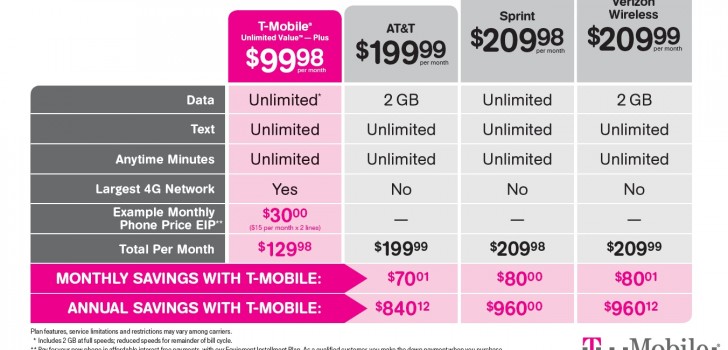Consumers will be able to purchase Apple iphones directly from its manufacturer following an announcement by Apple it will be offering iPhone sales to customers without them being tied to wireless carriers.
The offer marks a departure from agreements Apple has had with wireless giants as Verizon and AT&T which rely heavily on the iPhone to attract customers in the very competitive U.S. cellular plan market.
Carrier support and promotion has been cited as a main reason for the success of the iPhone, which last year accounted for 56% of Apple’s total of $183 billion in sales.
Apple’s offer appears to be the result of pressure the company is under to sell more phones and also comes after carriers stopped offering phone subsidies for signing a contract. Without this subsidy, and given carriers are basically required to require the iPhone due to consumer demand, there appears little reason for Apple not to sell phones directly to its customers.
These customers, who can only deal with carriers and whatever pricing and incentives they are offering, are now upgrading far less frequently than in the past.
According to telecom consultant Chetan Sharma the average time for upgrades in the U.S. is now 26.3 months compared to 18.2 months in 2010.
That means far fewer phone sales for Apple and it appears now to be taking matters into its own hands.
Under the Apple offer customers can, for a monthly fee of $32.41 over 24 months, buy the cheapest iPhone model. According to the Apple website, under the deal customers can get a new device each year as well as having more options when selecting a carrier.
Verizon’s former chief operating officer Denny Strigl said Apple is wanting to take away control of phone customers from wireless carriers as companies that have more control over customer relationship have more pricing and sales leverage.
Strigl added that if customers went to Apple to finance their phones the company would be able to guide the customer toward a carrier with a cheaper service.
A current Verizon spokesman said the company “would love to sell them the device,” but the most important thing is for customers to choose Verizon for wireless service.
T-Mobile’s chief operating officer, Mike Sievert, was in favor of Apple’s move as it would allow customers to try other carriers.
Marcelo Claure, Sprint’s Chief Executive said the relationship strain between Apple and carriers is less about control of customers and more about long term contracts that discouraged customers from buying new iPhones each year.
“Apple is trying to do nothing more than shorten the cycle so they can sell more iPhones,” he said. He added that since his company introduced annual upgrade plan last month, 90% of new customers have purchased it.
This isn’t the first time that Apple has moved into carriers’ territory. In 2014 it launched an iPad with a cellular SIM card allowing customers to select their wireless carrier immediately.
The move also marks Apple’s move into the world of finance. The company is now going to offer aggressive financing on its product to maintain sales, which may add to margins but may also indicate that ‘peak smartphone’ has hit mature markets.
Stay Connected